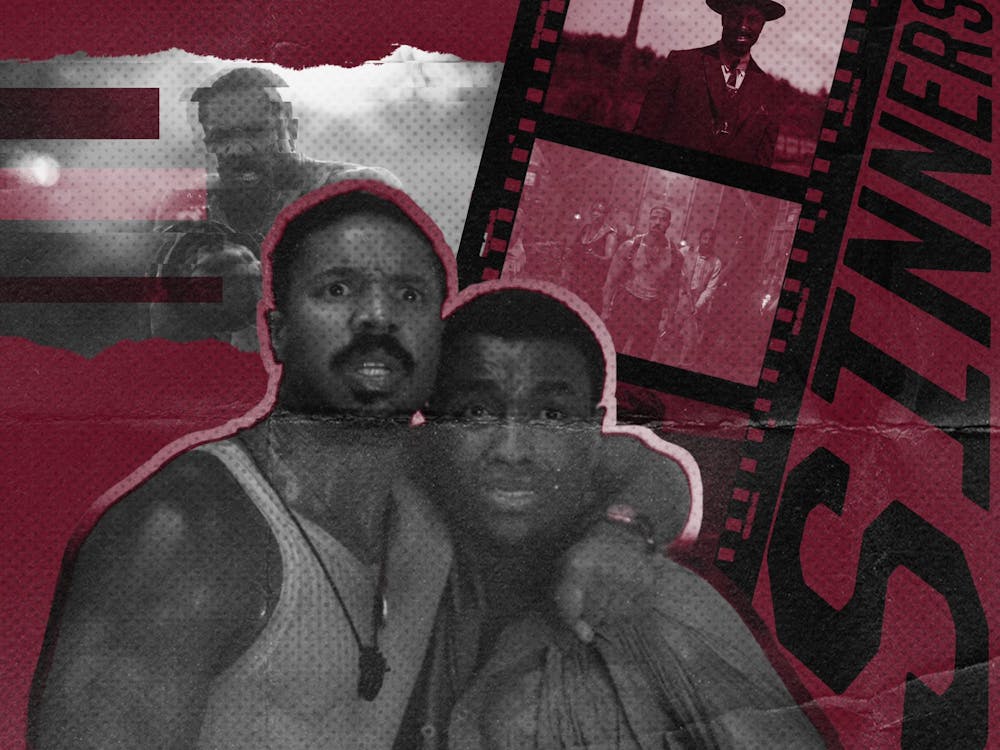By Devon Shuman, Culture Editor
Contains minor spoilers for Season two of "Mr. Robot"
I don't know much about hacking. Sure, I took a half-semester BASIC programming course in high school, but unless all it takes is a few nested if statements, I'm probably not going to be hacking into any major networks anytime soon.
That being said, as an entertainment critic, what I do know is this -- when it comes to hacking, Hollywood gets it horribly wrong.
For years, I've watched plenty of films and television programs that feature computer "experts," stereotypically clad in thick glasses and full-zip sweatshirts, magically hacking into large databases by mashing away at the keyboard for a few seconds before heroically tapping the enter key.
This isn't just horribly inaccurate. This is screenwriting at its laziest. It's rare to find a story in which the hackers are more than miraculous nerds that the writers can use to bring the plot wherever they want.
Enter "Mr. Robot," Sam Esmail's show about a socially inept computer whiz named Elliot (Rami Malek, who just won an Emmy for the role), who works as a cyber-security engineer. His company's main client is E Corp, a massive financial corporation. Elliot teams up with a group of hackers named FSociety, which aims to initiate a worldwide social revolution by taking down E Corp.
Part of what makes this show so good is its commitment to real-life computer programming. Nowhere here will you find any button-mashing Hollywood hackers. The techniques used in "Mr. Robot" are realistic. Like anything on the big screen, they're probably not 100 percent accurate. But Esmail at least takes the time to construct believable hacking scenes.
However, the show itself is about so much more than just a bunch of hackers. It uses its central hacktivism storyline to explore such topics as mental illness, corporatism and society's escapist nature. Elliot may be a prodigy with computers, but he's also a deeply troubled individual. This struggle creates for wonderfully compelling television.
During an election season that saw the far left calling for the break-up of large corporations, "Mr. Robot" could be criticized as a socialist's fantasy of creating a utopia by taking down the top capitalist institutions. However, Esmail deftly steers his story away from such a narrative. After a first season finale in which FSociety pulled off their first major hack on E Corp, one might have expected a second season filled with a blissful, financially stable society. This is not the case.
We soon find that the post-hack world of "Mr. Robot" is a desolate place, filled with economic devastation and paranoia. Revolution, it seems, is not always a seamless solution.
Esmail captures these themes through a distinct visual style. If nothing else, "Mr. Robot" is refreshingly fun to look at. Esmail defies cinematic norms, often placing his characters far to the edge of the screen to create a claustrophobic sense of fear. He captures key scenes, such as a heist or an FBI shootout, by tracking his subjects closely, keeping enemies and obstacles ominously hidden from view.
Enjoy what you're reading?
Signup for our newsletter
As the cinematography shows, Esmail is not afraid to take big stylistic risks. Each episode plays like its own movie, and the viewer is never completely certain what they're going to see.
It might be a dream sequence in which the main characters sit down for a family-style dinner in the middle of a New York City avenue, or it could be a 20-minute opening filmed like a laugh track-filled multi-camera sitcom (a macabre one, at that). Often, Esmail oversteps his boundaries and tries to go too big, but he does so with so much confidence that it still works. In the hands of a lesser director, these moves might come off as pretentious. But Esmail is sure of what he's doing, and that poise emanates through the screen.
Part of what makes the second season so much fun is its distortion of reality. The twist-filled first season revealed Elliot as an unreliable narrator. This leaves the viewer always wondering if what they're seeing is real or not. When a similar midseason big twist occurs, it's not as shocking, as you're already aware that something might be up. But it's still executed so flawlessly that it's equally as satisfying.
The plot itself drags at times, and the showy dialogue often feels overly abstract. But the show's masterful cinematic qualities and marvelous performances across the board help to keep the viewer engaged.
Add in a haunting, tension-filled score from Mac Quayle, and what you have is a one-of-a-kind, well-rounded show.
Echoing his character's narration, Malek opened his Emmy acceptance speech by saying, "Please tell me you're seeing this too."
We're seeing it, Rami. And we're loving it.
4/5 Stars




